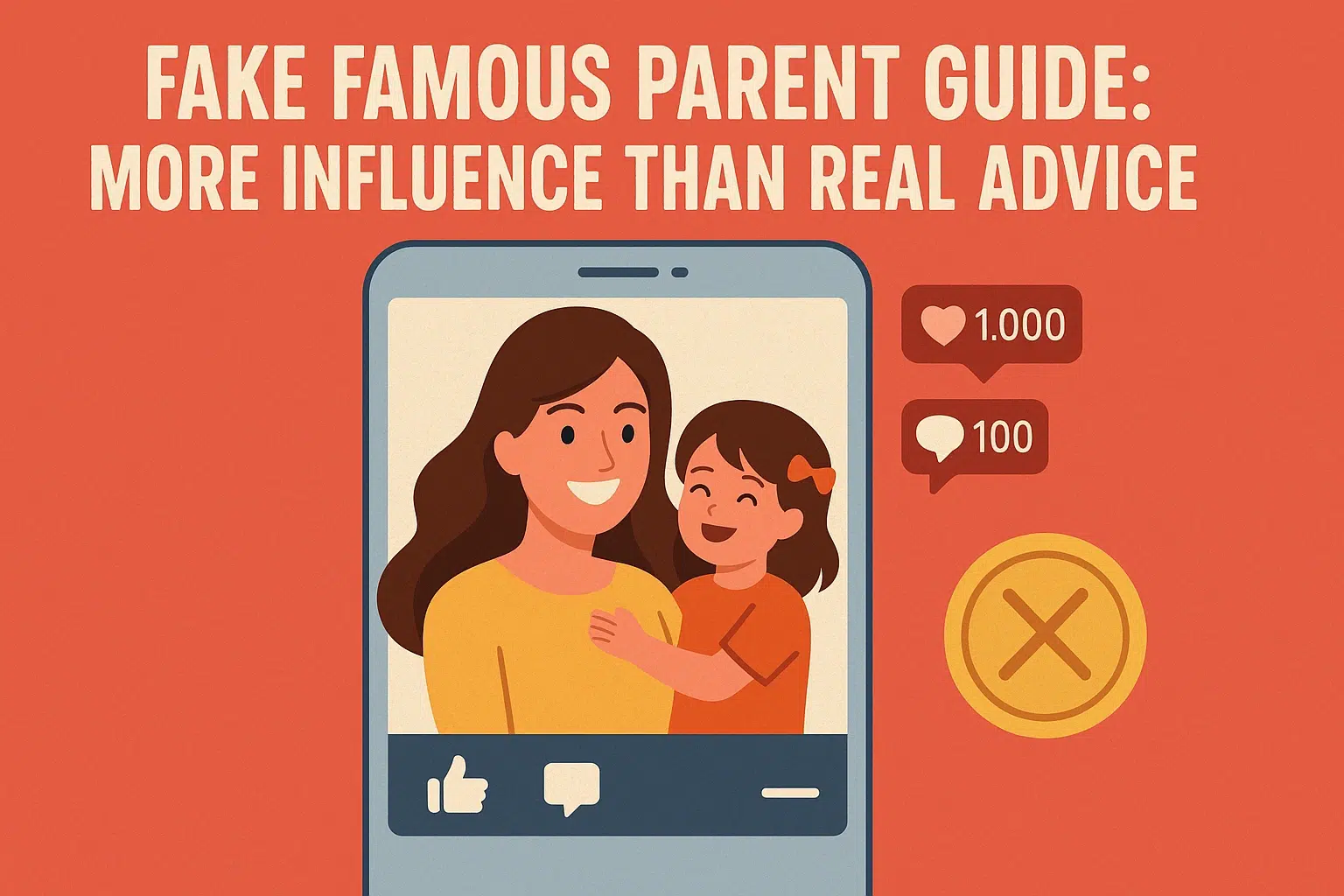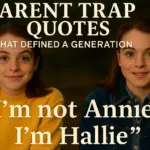In the age of social media, parenting has become more than just a personal journey—it’s now a public spectacle. One of the most curious and controversial phenomena to rise from this shift is the so-called fake famous parent guide. From influencer moms flaunting curated lives to YouTube dads creating daily family vlogs, the idea of parenting is increasingly shaped by those who may prioritize fame over real substance. But what exactly is the fake famous parent guide, and why has it gained such traction? Is it merely entertainment, or is it impacting real-world parenting decisions in meaningful (or harmful) ways?
The Rise of Parenting Influencers
Social media platforms like Instagram, YouTube, and TikTok have given rise to a new breed of celebrities: parenting influencers. These individuals or families have amassed large followings by documenting their parenting journeys, offering tips, showcasing products, and even turning their children into mini-celebrities.
While many offer relatable and helpful content, others have been accused of pushing a fake famous parent guide that prioritizes likes and views over authentic parenting advic
What Is the Fake Famous Parent Guide?
The term “fake famous parent guide” refers to a style of content that appears to offer parenting advice but is, in reality, more focused on promoting an idealized or commercialized version of family life. These guides often:
- Highlight picture-perfect homes, kids, and routines
- Include sponsored content disguised as genuine recommendations
- Lack real-life struggles and challenges
- Present staged or edited versions of parenting moments
At first glance, they may seem helpful or inspirational. However, the problem arises when followers start comparing their own messy, imperfect parenting lives to the highly curated online versions.
Read More: chelsea acton famousparenting
The Problem with Idealized Parenting
When a guide becomes more about influence than truth, it can lead to a host of issues:
- Unrealistic Expectations: Parents may feel inadequate when they can’t replicate what they see online.
- Mental Health Struggles: Constant comparison can cause anxiety, depression, or guilt.
- Financial Pressure: Trying to keep up with influencer-approved products can strain a family’s budget.
- Neglect of Real Issues: Many of these guides skip over real parenting challenges like postpartum depression, child behavior issues, or work-life balance.
The fake famous parent guide can distort what successful parenting actually looks li
The Role of Sponsored Content
A large portion of influencer parenting content is monetized. From diapers and strollers to skincare and home decor, many guides are shaped by brand partnerships. While monetization isn’t inherently bad, it does blur the line between advice and advertisement.
This commercial aspect adds another layer to the fake famous parent guide phenomenon. Parents are no longer just sharing tips—they’re selling lifestyles.
Real vs. Fake: How Can You Tell?
It’s important to learn how to identify whether a parent guide is genuinely informative or just part of the fake famous parent guide trend. Here are some signs:
Red Flags:
- The content feels overly polished or staged
- Every product recommendation has an affiliate link
- There’s little mention of struggles or failures
- Children appear more as props than participants
Green Flags:
- Offers both successes and failures openly
- Encourages personal intuition and flexibility
- Discloses sponsored content transparently
- Promotes emotional well-being over aesthetics
Why Do People Follow the Fake Famous Parent Guide?
Despite the drawbacks, millions continue to follow these influencers. Why?
- Aspirational Appeal: Many enjoy seeing what they wish their lives looked like.
- Entertainment: Watching seemingly perfect families can be comforting.
- Community Feeling: Followers often feel connected through comments and shared experiences.
But when admiration turns into comparison, the fake famous parent guide stops being harmless entertainment.
Read More: mom life famousparenting
The Psychology Behind the Trend
Social validation plays a huge role in this trend. People seek affirmation for their parenting choices, and influencers provide it—even if the model they offer is unrealistic.
This can be especially damaging to new parents who are already vulnerable to judgment and uncertainty. A fake famous parent guide can make it harder for them to trust their instincts.
The Impact on Children
When children are consistently featured in staged photos and videos, ethical concerns arise. These include:
- Loss of Privacy: Children have little say in how their image is used.
- Pressure to Perform: They may feel obligated to “act” for the camera.
- Long-Term Consequences: Content remains online forever, shaping a child’s digital footprint before they understand its implications.
The Responsibility of Influencers
As this trend continues, more influencers are being called out for promoting the fake famous parent guide lifestyle. Many are now taking steps to be more authentic:
- Sharing mental health journeys
- Highlighting parenting mistakes
- Limiting how often their kids appear online
Some have even issued public apologies or rebranded their content entirely.
How to Find Real, Supportive Parenting Advice
Parents looking for genuine advice should consider:
- Trusted parenting books by licensed experts
- Support groups (both online and offline)
- Educational websites with peer-reviewed resources
- Parenting podcasts with real-world stories
These sources are less likely to sell a lifestyle and more likely to offer realistic, usable advice.
How to Protect Your Mental Well-Being
If you find yourself overwhelmed by influencer content:
- Unfollow accounts that trigger comparison or guilt
- Limit screen time, especially during emotional moments
- Talk to real-life parents and share honest experiences
- Practice gratitude for your unique parenting journey
Remember, you are not failing; you’re just not staging it.
Will the Trend Ever End?
Like many internet trends, the fake famous parent guide may evolve. Already, there’s a growing backlash against inauthentic content. More influencers are being asked to “show the mess,” not just the magic.
Transparency and vulnerability are becoming more valued. This shift could lead to a more realistic and inclusive parenting culture online.
Read More: famousparenting health
Final Thoughts
The fake famous parent guide might seem entertaining and aspirational, but it comes with hidden costs. While not all influencer content is harmful, it’s important for viewers to approach it with a critical eye.
Real parenting is messy, beautiful, chaotic, and deeply personal. No Instagram filter or YouTube edit can truly capture that. As a society, we need to promote content that supports and uplifts parents rather than making them feel like they’re not doing enough.
Let’s embrace imperfection, share our truths, and build communities based on honesty over highlight reels.
FAQs
Q1: What is the “fake famous parent guide”?
A: It’s a trend where influencers promote idealized, often unrealistic versions of parenting that prioritize fame and sponsored content over authentic, helpful advice.
Q2: Why is the fake famous parent guide considered harmful?
A: It can create unrealistic expectations, mental health stress, and financial pressure on parents trying to mimic the influencer lifestyle.
Q3: How can I avoid falling for a fake famous parent guide?
A: Follow creators who show both the highs and lows of parenting, disclose sponsorships, and prioritize emotional and mental well-being over aesthetics.
Read Also :



